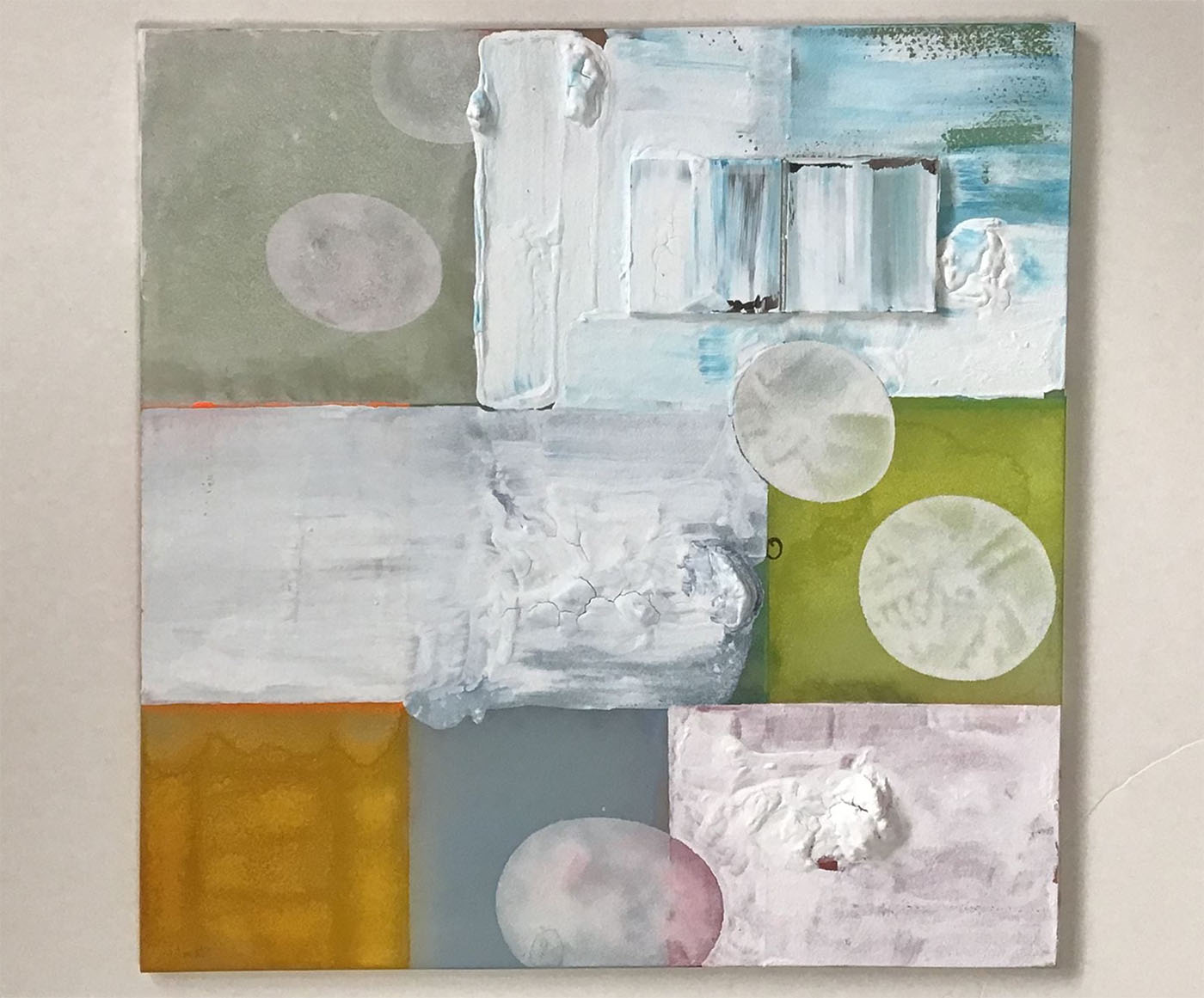
Micaela Amateau Amato
Silver Stories Book #1
Ch 1
She told me she wrote her stories across the walls of her room in tiny silver ink that disappeared and reappeared, depending on how the light of day or lamp illuminated the silver lines. She told me several voices could be heard throughout the room — some softer and indistinct — while other voices, and even words, could be heard more clearly. Fragments of sentences unfolded, she said, weaving together mostly non-sequiturs. Sometimes making sense, the words provoked a gasp or cry from depths of her emotions she hadn’t known were there needing to be released. Voices and text emerged, converged, or disappeared, depending where she stood and how she negotiated her space, she said.
She recognized images from memories unseen but somehow known, all compressed safely, precariously between thick sheets of plate glass suspended on the walls of her room hovering in between the stories written in silver script within the confines of shapes of shadows of waxen bouquets of flowers strewn here and there.
Reading and rereading these silver words she knew she was not alone but in the middle of many destinies, many parallel worlds. “It is written, they say,” she told me.
Hearing these fleeting voices as interjections, conversations she came upon, declarations of something real but still enigmatic, she wrote them down in the back pages of books that had neither provoked their sudden appearance nor explained their origin or purpose. Short circuits in her brain? Senility of some sort jolting into her present coherence? Or perhaps something far more wonderful and even euphoric. A recognition of her expansive soul traveling time and space. These interjections she later transcribed in silver text across the walls of her room.
Ch 2
She asked me a difficult question. Tell me please, if a crime happened decades ago, is it no longer a crime she asked. Even if the crime — a rape, a beating, a murder — happened only once or maybe twice in a person’s youth, is that a crime that should hound and haunt a person and ruin lives like the crime itself that still hounds and haunts me today everyday she asked? I was penetrated in the middle of the night, she told me, by a close friend, she said — when I was in college, she told me. He had been a high school boyfriend, but she had never had sex with him. He worked in the Governor’s office now she said. Should she go public with his crime? she asked me. Probably I would not, I told her. She protested, and, almost unable to breathe, she continued her story. Two years later, she said, she was raped on a blind date. He was a friend of one of her friends. But her friend, she said, did not believe her. Her friend’s name was Fran. If he ran for political office should she go public with her accusations? she asked. I told her that I wished her story had been written on the walls of her room in silver ink so that it would disappear into the light of day.
She told me that she cries every day. Her tears are tears of fear, of dread, but sometimes she has tears of the most intense joy she said. She doesn’t think she is depressed. She thinks she is responding to the terrors all around us, she said. I told her that I had read in Birds Without Wings that “The dead can read tears.” She did not respond. Together as we stood in the forest, we heard a deafening buzzing sound and saw a giant beehive blocking our path. Bees were suddenly everywhere — swarming, stinging. Don’t kill them, she pleaded. We need their honey.
Much later, wanting to share something of myself, I told her about my studio of paintings and sculptures that I titled Where all the land was sea. We are island people, I explained. Exiles living nomadic lives across continents and shifting seas I told her. Sometimes I make ancestral self-portraits, I explained. She looked confused as I spoke. Sometimes I make oil paintings like Byzantine water, and sometimes I make life-sized portraits of colorful cast glass, like ancient Egyptian faiyum portraits, and faience scarabs, amulets and hamsas. Light of day or light by lamp can disappear their mass I told her. Oh, I see, she said. Like the exiles themselves, she said. Yes! They are my lamentations for the dead I told her.
Yes, of course, she said. I sing saudade and duende I explained. Yes, of course, she said.
No joke the sky is falling! Don’t delude yourself! These words I heard inside page 119 of Rushdie’s Golden House. You know, she whispered, I am so grateful for the intimacies and honesty you share, she said. The time I spend with you helps me feel safe. She wrote this in silver ink inside the shadow of Adiche’s profile across the stone floor I heard inside page 100 Half of a Yellow Sun.
Ch 3
Where are you from? she asked. No, really. Where are you from?
What are you? she asked.
I am like you I told her. I am from here.
Aggression had broken her. Betrayal is an aggressive force, she said. Everything she believed dissolved into the light of day. She had evaporated from rage and humiliation. Bones, muscles. She could not breathe, no sight, no voice, she was no longer. 65 years had passed.
Why are you so angry? I asked. She looked at me in disbelief. Why are you so angry? she asked. I looked at her in disbelief but I did not respond.
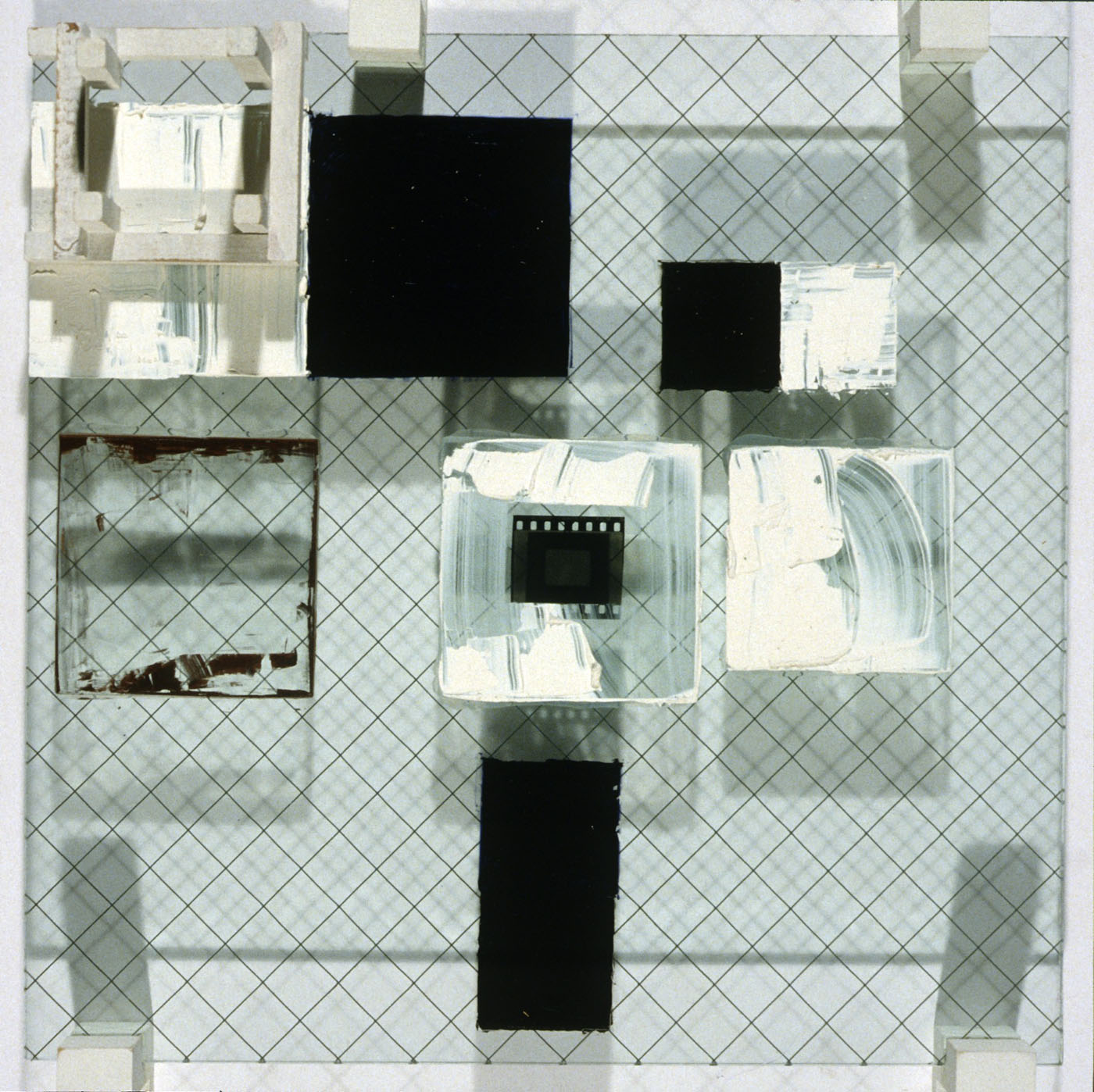
Ch 4
She told me they lay in each other’s embrace in the dark under the piano in Ella’s living room. She said she could feel his desire against her body and it was exhilarating. Those were the days we kissed for hours in such sweet pleasure she said. The world beyond evaporated for us she said. Our erotic searching with lips and tongues was intense and euphoric. Ella and Dave were nearby. She could hear them she said. Suddenly our dream was broken by sounds at the front door she said. Ella’s mother was home. HidePleaseQuick Ella warned us. Desperate not to be discovered he hid his face, throwing his arms across his head. Frozen trying not to breathe our eyes closed tightly praying we would be invisible in the dark. His panic frightened her. She had not recognized his fear before, she said. Moments later Ella’s mother could be heard ascending stairs to rooms above. Distrust was not new to him. This survival instinct he carries because he is black in a white world she said. That threat he lives I hope is in my clay figures she said. Bent sideways head lowered, eyes closed, already invisible but praying to escape to disappear, she said. I feel it in your clay figures I told her. He knows it still I am sure even at 75 years old she said. NoNoNo. He is dead I said. He died in Vietnam with a medal on his chest “for the Wrongs that need resistance.” How could I have forgotten, she whispered.
Ch 5
Silver stories spiraling. Fragments of words becoming sounds in my head. Neon poems unplugged disappear in the light of day. Avlar kero i no puedo mi korazon sospira. I want to speak I can’t my heart sighs. Like fragments of ice on their way to the sea.
Why is your painted water also earth and wind I asked. Why are they like convulsions of the body I asked. Are they ecstatic ejaculations or death knells I asked. They are radiance with no boundaries. They are beauty, mercy, splendor she said. Everywhere is the center of the universe she said. Yes,Yes, I see that I said.
Ch 6
You betrayed our love our dignity our future together so many years ago he told her. I had no choice but to pretend we were over she pleaded. You had a choice he said. Years later I told my family that we had remained together she said. I don’t believe you he said. They knew me and it was all okay and then they denied us, he said. It was for our safety she said. So many couples were attacked in those days in the streets in their homes followed and beaten. Black, brown, and white friends warned my parents we were playing with fire she said, and they feared for our safety my safety, she said. Their fear was greater than your love for me he said. I dream about our baby she said. You betrayed me he said. I betrayed us she said.
I don’t want to lose you again now. There was no response.
Ch 7
My father was blind she said. Seven of nine siblings were blind she said. He was a photographer and made films. I helped him in the darkroom she told me. He was a man with paciencia, courage, compassion, and a wild sense of humor she said. He had rage I said.
He was a passionate reader and as his blindness increased he memorized his favorite books she said. He told me stories of Hugo LaFontaine Montaigne Dumas. Stories of passion, courage and justice she told me. His love for my mother was magical she said. She had almond eyes he would say. MerleOberonEyes he would say. Like Halime’s gazelle eyes I said. Yes. My father was the ancient Turk Ertugrul she said. I still have his red fez. He translated stories from Turkish Arabic Spanish Greek Swahili French Italian, but English could not capture the depths of emotion of duende and saudade he would say. Do you know about the hakawati? I asked. In Arabic it means a storyteller who weaves a frame tale, a framing narrative, a magical fable, a hybrid tale, a fusion, a felting, a cross pollinated odyssey so filled with love I told her.
Ch 8
Tell me a story she says.
Breathless the curtain rises and I begin. Flying down deep stone steps set so far apart I leap into a darkened void and proceed fast and strong through Moorish gardens, Minoan labyrinths, Mughal courts, Villa Lante. Hanuman is also Hannah a scientist physician artist spiritual healer who can cure burns and battle wounds with amber and rare and common herbs and soothe anguished hearts with music and poetry with six legged goats, a basket of custard apples, and twenty short legged tattu horses I tell her. Like ibn Sina I say. Yes Averroes we call him she says.
Could you be alone if he was gone she asked. I will go first I am sure I said. Barbinah Mashallah Bismillah you will not she said. Hanuman had visions of king tides that will rise over limestone plateaus from beneath the peninsula in the west and up the Adriatic Sea, flooding the canals of Venice she said. The wretched poor will become refugees exiles nomads decades before the floods and the arrogant wealthy will drown in oblivion she told me. “Apres moi le deluge” she said. The paradox goes unnoticed she said. The irony does not I said. Coastal ridges sit high above a dangerously porous underbelly like quicksand, she said, succumbing to that merciless sea and the arrogant the merciless will drown she said. Pajaros en su garganta estaba sonando. Birds in her throat she was dreaming, she said.
I don’t remember how it began. I want to remember but I do not. I heard words I never knew she thought nor imagined she believes. Has she always? Yes always she has I said. It should be no surprise if I open my eyes. Birds in my throat I was dreaming. I want to remember but I do not. Please leave she said. I do not care much anymore she said. I do not know you she said. I am released. Birds in my throat she said.
Ch 9
Where are you from they would ask looking sideways. I am from here she would say. NoNo where are you really from they would insist. I am American like you she would say. NoNo where were you born. I was born in New York City I was born in Los Angeles, and in Seattle she would say. Ahhhh, yes, that explains everything they would say. They admired and respected her talents but they did not like her. She made them feel strange they would say. She made them feel strange.
Ch 10
By the year 1000 our tribe had traveled west toward Constantinople from Baghdad she said. Words of a new language were born in my ear from an ancient knowledge both male and female, a spirit and a soul being between, being both, far beyond either she said. We were aljamas, both Moors and Hebreos for 700 hundred years in Iberia from the Maghreb and then conversoes xuetas anusim, breathing between inquisitional life and death. We lived the third interval and our ancient powers remade the world across the amber ivory saffron porcelain glass tesserae silk routes, connecting natural forces and intersecting rhizomes in the shadows of the Upanishads, Peoples of the Book, Zoroastrians. Magical materials merged, alchemical accidents, accretions from the earth. Translucent emissions we realized through our fingertips, a most intimate tactility, an inherent intelligence and poetry in the year 1000, elusive if not lost to the 21st century if not for us, making humanity in imminent danger of becoming irrelevant.



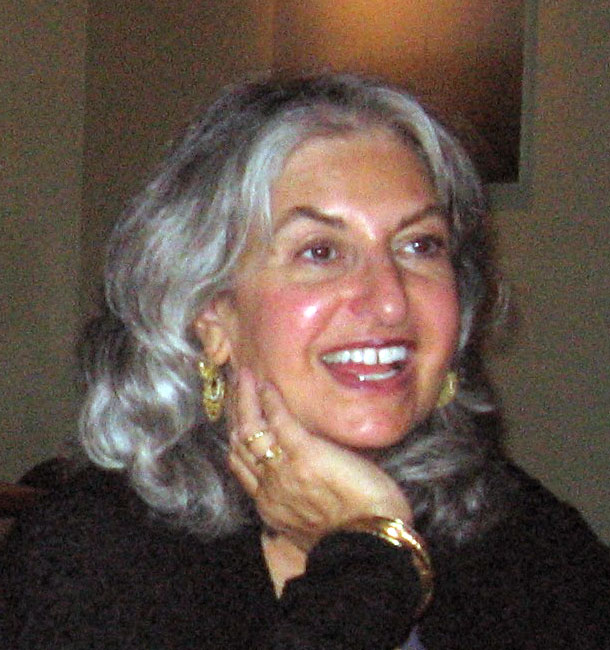
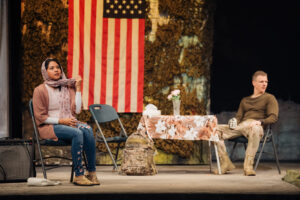
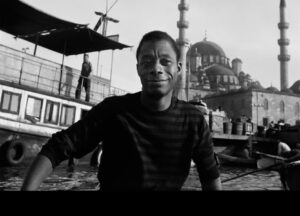

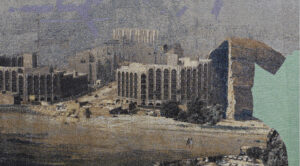
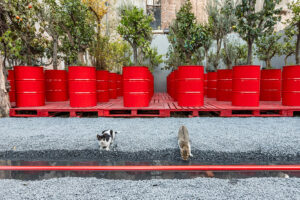








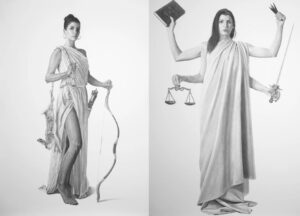
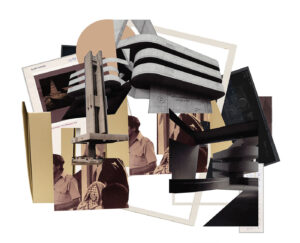
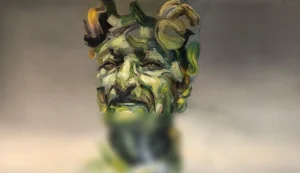

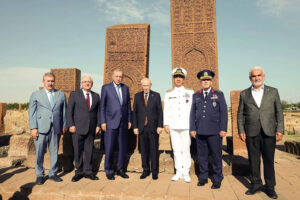

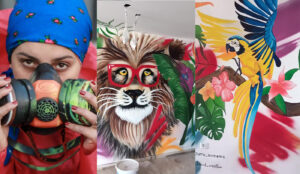

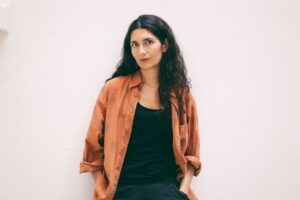
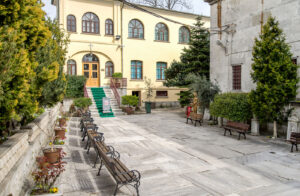



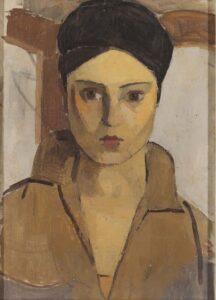



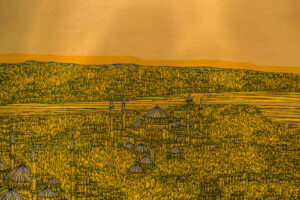




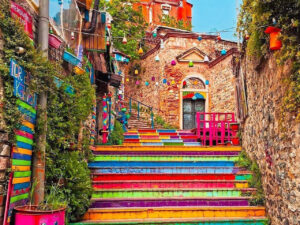

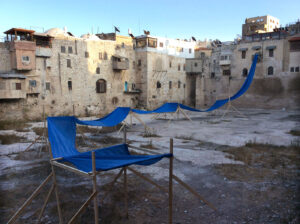




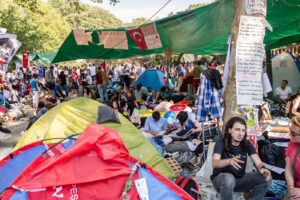




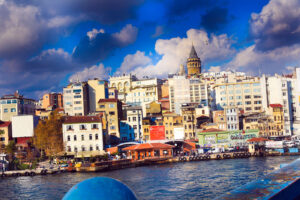

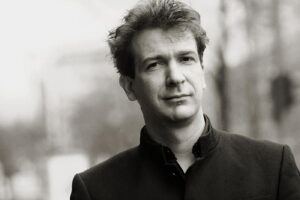


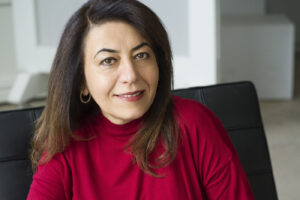



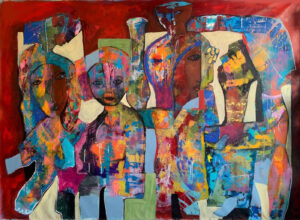





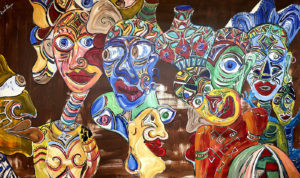

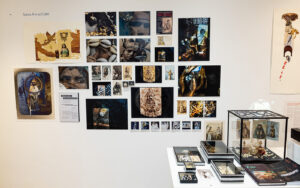

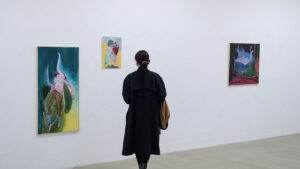

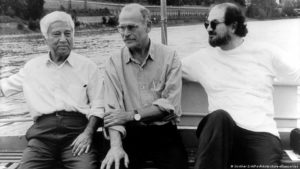



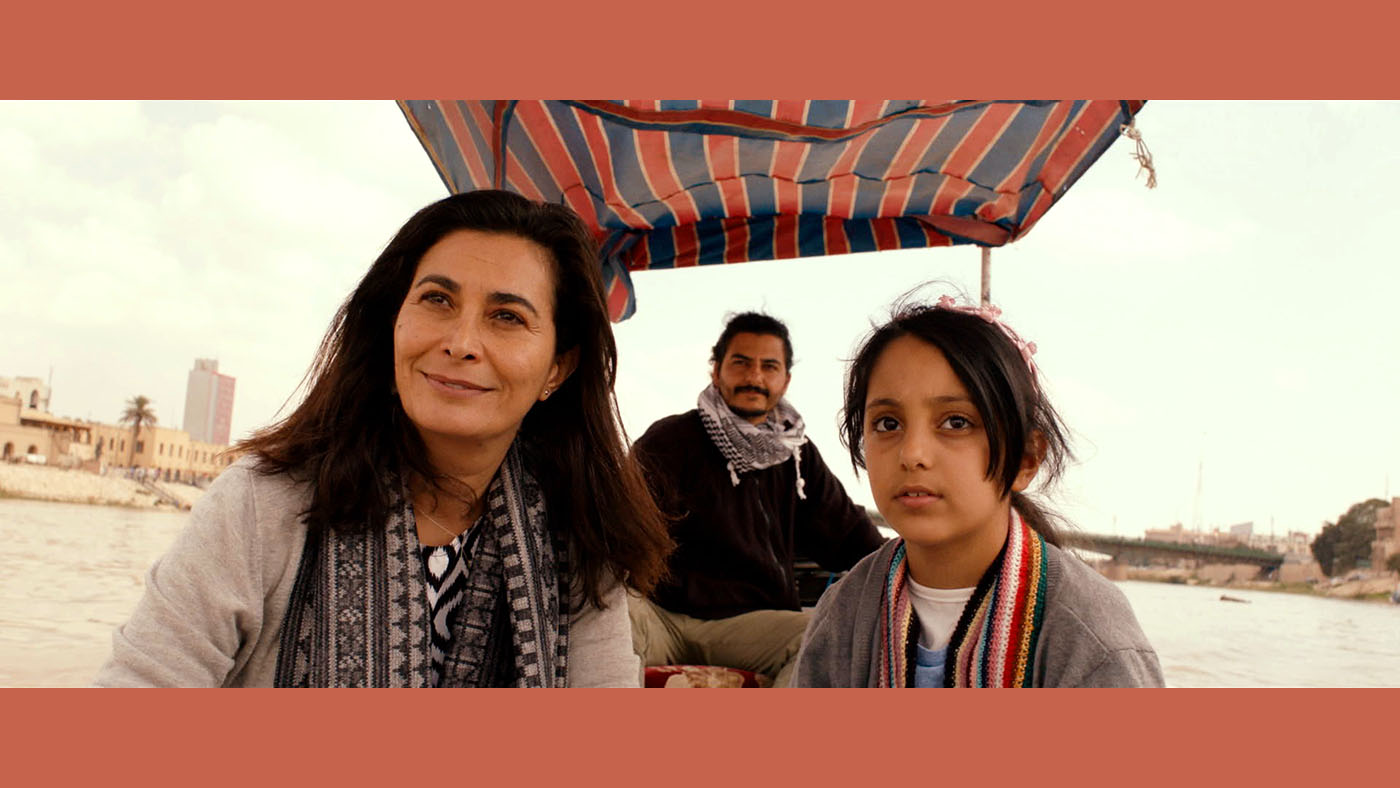
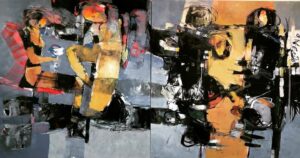





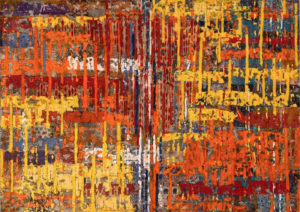




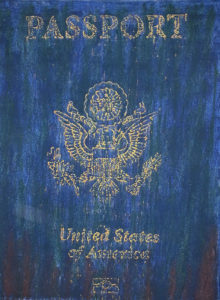





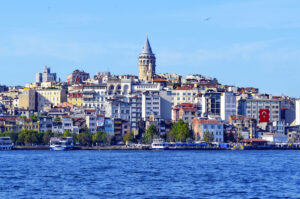




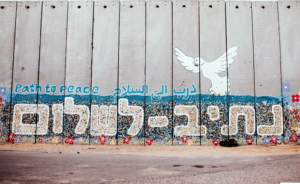
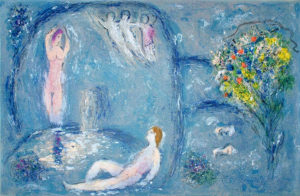


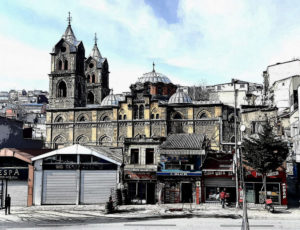




Language that reads like liquid poetry and painting that looks like metal silver.
so happy to know we shared these silver stories….thank you Alicia.